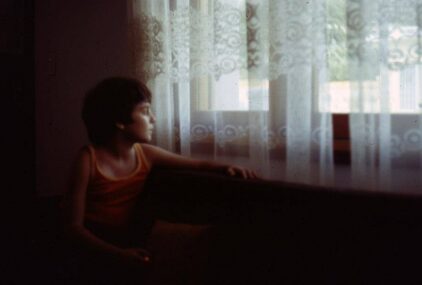
Intersex persons’ rights on the spotlight
The rights of intersex persons gained visibility between October 26th (Day of Intersex Awareness) and November 8th (Intersex International Day). During this period a number
The marks on our bodies
Originally published at Intersex Day. Available at: https://intersexday.org/en/mauro-cabral-marks-bodies/ Mauro Cabral draws a line between the marks on his flesh and the words that clinicians use

Intersex rights and freedoms
Originally from: https://morgancarpenter.com/intersex-rights-freedoms/ Published in the UNSW Law Society journal “Court of Conscience” issue 9, 2015, on “rights and freedoms”, this paper considers what it

Partners for Law in Development (PLD) launches an online database, Feminist Law Archives
The Partners for Law in Development has launched the Feminist Law Archives (FLA) to celebrate the rich and vibrant history of feminist engagement with law in India.

Transgender women living with HIV in Los Angeles County face an array of unmet legal needs
Transgender women living with HIV in Los Angeles County face a variety of legal needs that have a significant impact on their access to resources such as income, health care and housing, but most do not receive any legal assistance, according to a new analysis by researchers at the Williams Institute at UCLA School of Law.

Documenting the LGBTQ Community in Uganda: I AM OTHER
In 2014, Rihanna, a 22 year-old transgender woman living in Kampala, Uganda was arrested and jailed under Section 145 of the Ugandan Penal Code Act for having “carnal knowledge against the order of nature” — or simply put, for being LGBTQ.

‘Reflecting on Ten Years of Sex Workers’ Rights in Europe’ – 30 November 2015, European Parliament
2005–2015: reflecting on ten years of Sex workers’ rights in Europe Monday 30 November 2015 · 15:00 – 17:00 European Parliament · Paul Henri Spaak

Sexual and Reproductive Rights in the Dominican Republic
AWID spoke with Sergia Galván, Executive Director of Colectiva Mujer y Salud [Women and Health’s Collective] from the Dominican Republic, on the realities faced by women with regard to their sexual rights and reproductive health.

Summary of the New Zealand Prostitution Reform Act
Originally published at The English Collective of Prostitutes. Available at: http://prostitutescollective.net/2009/06/11/summary-of-the-new-zealand-prostitution-reform-act/ The Prostitution Reform Act (PRA) came into operation in New Zealand in June, 2003.

‘Coming Out of Concrete Closets’: LGBTQ Criminalization as Reproductive Injustice
The data in Coming Out of Concrete Closets sheds light on the ways in which systemic discrimination of LGBTQ communities—particularly low-income communities and communities of color—forms a dragnet of criminalization for the most marginalized. (Shutterstock)

